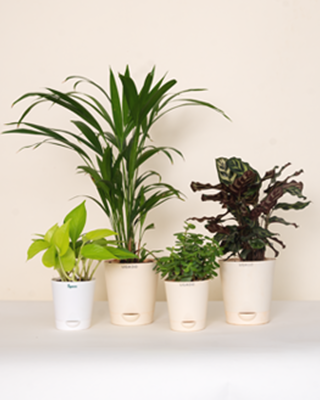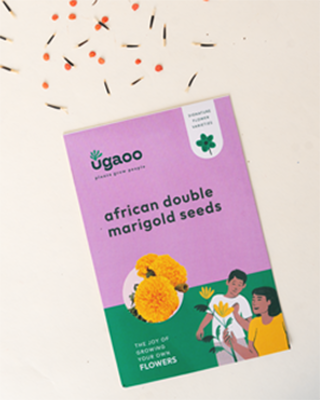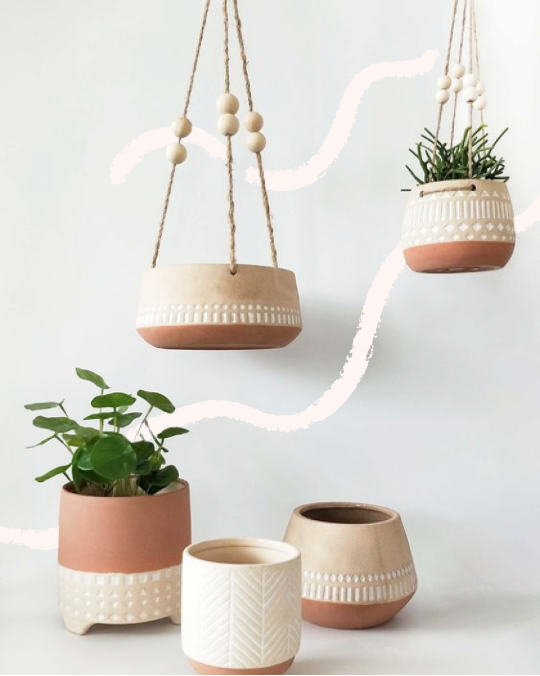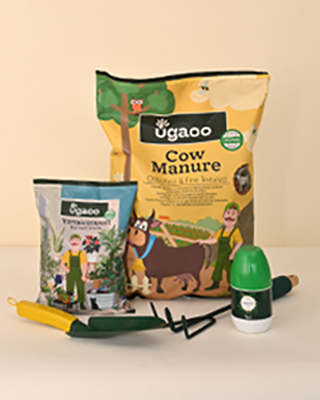Known for its vibrant and long-lasting flowers, Helichrysum is a genus of flowering plants that has captured the attention of gardeners worldwide. Whether you're a seasoned gardener or just starting out, understanding how to grow Helichrysum can allow you to grow your own, helping you create your own ornamental flower garden at home!
Buy Helichrysum Seeds
So, if you're looking to grow your own Helichrysum flowers from seeds in your garden, this blog will tell you everything you need to know - from starting your flower seeds to pairing the mature flowering plant with others to complement it better! So, without saying much more... let's get started!
• Origins of the Flower: Where Does Helichrysum Come From?

Often referred to as the "Strawflower" or "Everlasting Flower," Helichrysum belongs to the Asteraceae family, which includes sunflowers and daisies. The genus Helichrysum comprises over 600 species, most of which are native to regions of South Africa, Europe, and Asia. The name "Helichrysum" is derived from the Greek words "helios" (sun) and "chrysos" (gold), reflecting the golden hues of many species in this genus.
These flowering plants have been cherished for centuries for their ability to retain their vibrant colors even after drying, making them popular for dried flower arrangements and crafts. In the wild, Helichrysum thrives in rocky and sandy soils, often found in Mediterranean climates, which greatly contribute to its hardy nature and commendable drought resistance.
• Sowing Helichrysum Seeds
Helichrysum is a very easily maintained and grown plant once established. However, in its seed stage, it is safe to say that all plants are a little difficult to get a proper hold of. The germination phase is always tricky because you are yet to understand what the seeds need to germinate and then what the seedlings need to grow better. So, to make your journey easier, here's what you should know about what the seeds need:
1. Sowing the Seeds
One thing you should always avoid when trying to germinate your seeds is the extreme cold weathers. So, sow your seeds about 6-8 weeks after the last cold wave. You must use seed trays that will give each seed enough space to germinate and grow. If you do not have seedling trays, you can use a egg carton and separate the two halves. Then, sow the seeds in the hollows.
Use Cocopeat for the germination process as the porous material allows for more drainage and aeration, giving your seeds a better chance at growing.
2. Watering and Light
During the germination phase, remember to water your seeds consistently. Every day, use a shower-head type watering can to get enough water to your seeds. Additionally, you must always keep your seed trays or egg cartons in direct sunlight. Place it in a spot that receives at least 6-8 hours of sunlight daily. However, you can also use grow lights if you do not have access to direct sunlight for prolonged periods every day.
With this, the seeds ideally should germinate in 10-21 days.
3. Transplanting your Helichrysum Seedlings

Once your Helichrysum seedlings have developed a few sets of true leaves and the risk of cold waves has passed, they can and should be transplanted outdoors. Pick a sunny spot in your garden with well-draining soil. Remember to place the seedlings about 12-18 inches apart to allow room for growth. Helichrysum prefers sandy or rocky soils, making it an excellent choice for rock gardens or areas with poor soil quality.
• Helichrysum Plant Care Tips: What's Next?

Once established, the Helichrysum plant is quite easy to care for. But it still needs some basic know-how and understanding of its needs to thrive in your home.
So, here are some basics to know:
1. Watering
Remember when we told you that Helichrysum was drought-tolerant? Yup! It is and this makes it need much less watering than many other flowering plants. Water the plants deeply but infrequently, allowing the soil to dry out between waterings. Overwatering can lead to root rot, so it's crucial to avoid soggy soil.
2. Fertilization
If you are growing your stunning flowers directly in the ground, you can use natural fertilizers that can be easily mixed into the soil around the plant. One such excellent fertilizer that promotes better flowering is Epsom Salt.
However, if you are growing your Helichrysum flowers in pots and planters, you can make use of Ugaoo's Plant Food Bloom Sticks. These sticks are packed with essential ingredients and nutrients that allows your plants to grow and their flowers to bloom better.
3. Pruning and Deadheading

Proper Helichrysum plant care includes knowing that pruning and deadheading them is vital for their health. Regularly deadhead spent flowers to encourage continuous blooming throughout the growing season. Pruning the plants in early spring or after the first flush of blooms can help maintain a compact and bushy growth habit.
4. Pest and Disease Management
Helichrysum is generally resistant to pests and diseases, but it's still important to monitor the plants for any signs of trouble. Aphids, spider mites, and powdery mildew can occasionally affect Helichrysum. You can use organic insecticidal soap if you have access to it or Neem Oil to treat any infestations and ensure good air circulation around the plants to prevent fungal issues.
• Flowering Plants that Go Best with Helichrysum
Your favorite flowering plant has grown up... now what? Let's get creative! Here are a few flowering plants that will go perfectly with your Helichrysum:
1. Lavender

The soft, purple hues of Lavender contrast beautifully with the bright, bold colors of Helichrysum. Both plants thrive in similar conditions, making them ideal partners in a Mediterranean-style garden.
2. Salvia
Salvia's spiky flowers and silvery foliage complement the rounded form and bright colors of Helichrysum. Together, they create a vibrant and cohesive look in the garden.
3. Gaillardia

With its warm, sunset-colored blooms, Gaillardia pairs beautifully with Helichrysum. Both plants are drought-tolerant and thrive in full sun, making them perfect companions.
4. Coreopsis
The cheerful, yellow flowers of Coreopsis echo the golden tones of many Helichrysum varieties. This pairing creates a harmonious and sunny garden display that blooms throughout the summer.
So, which flower will you be growing your Helichrysum flower with?















